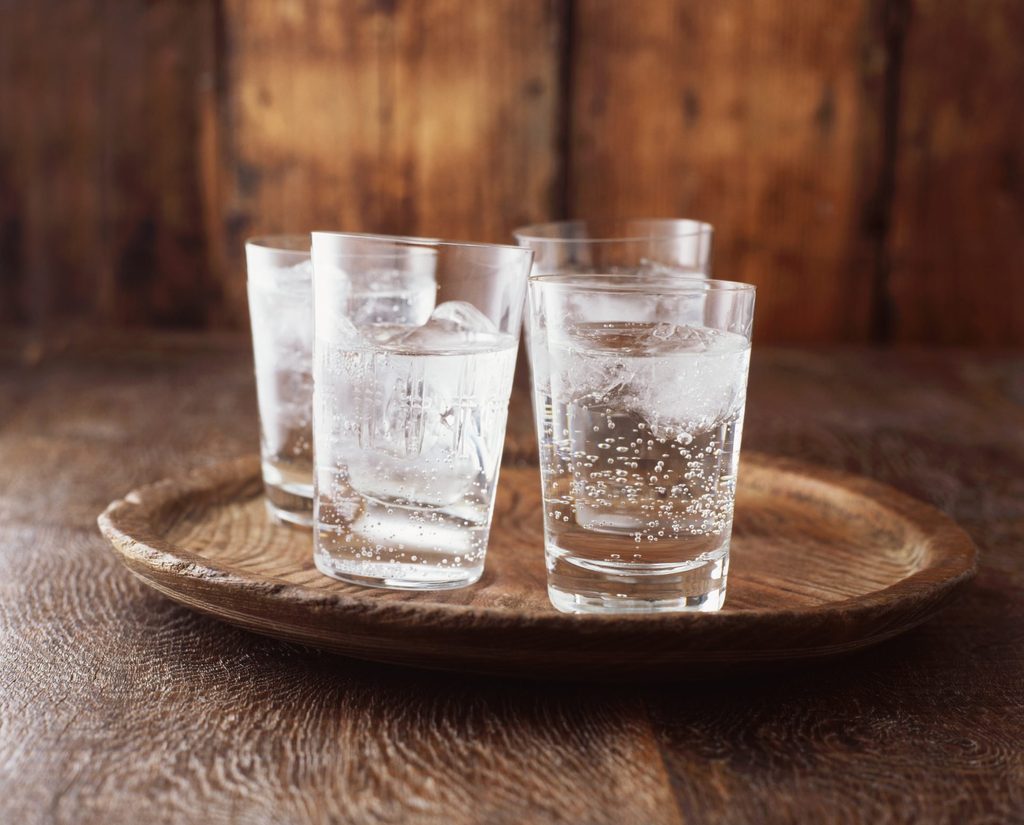Is Sparkling Water Good or Bad For You?

Sparkling water might be a good alternative to sugary soda, but is it healthy? Here's why experts say it's important to do your research on the type of sparkling water you buy.
We all know the importance of drinking enough water to stay hydrated—especially if you have an active lifestyle. For some people, though, downing large amounts of plain H2O seems boring when there are so many other beverages to choose from.
Sparkling water is a popular alternative, and it’s healthier than soda or alcohol. Even so, you may wonder: is sparkling water actually good for you?
“Carbonated water can be a wonderful way to remain hydrated without intaking a ton of unnecessary sugar,” says Gabrielle Tafur, RD, a registered dietitian in Orlando, Florida. Even so, she adds, it’s important to know the ingredients to make sure it “doesn’t also have added sugar and other ingredients.”
(Related: 9 Things That Happen to Your Body When You Get a Full 8 Glasses of Water)
Different types of sparkling water
First off, not all bubbly waters are the same. Here are the differences between sparkling water, mineral water, club soda, and seltzer.
Sparkling water
Sparkling water typically comes in various forms and contains alternative sweeteners to give it a sweet flavour without the calories, Tafur says. These are usually inexpensive and marketed as being low-calorie and sugar-free.
Sparkling water is water infused with carbonation, says Soma Mandal, MD, a board-certified internist at Summit Medical Group in Berkeley Heights, New Jersey. It’s usually naturally occurring and often flavoured with natural or artificial sweeteners.
Mineral water
Unlike seltzer water and sparkling water, mineral water has minerals (electrolytes) such as potassium or calcium. Mineral water can be carbonated or still, and it often costs more due to the ingredients. “Because sparkling mineral water is naturally carbonated from a spring or well, this makes it cost a bit more,” Tafur says.
Seltzer
Seltzer water—water infused with artificial carbonation—is made without any sweetening agents and typically contains trace amounts of sodium, Tafur says. “Seltzer is a personal favourite of mine as it comes in bulk, at a reasonable price point, and does not contain any additional ingredients,” she adds.
Club soda
Like seltzer, club soda is water infused with carbon dioxide. Unlike seltzer club soda also contains added minerals (usually sodium), Dr. Mandal says.
What are the benefits of drinking sparkling water?
Believe it or not, sparkling water is just as hydrating as regular water, Dr. Mandal says. That’s good news if you commonly find yourself craving a little bubbly.
Like plain water, sparkling water is a much better choice than sugary beverages like soda and juice, Dr. Mandal says. “Although plain water is the best way to go, I promote sparkling water as an alternative to soda,” she says. “Let’s face it, soda has way too much sugar. And sparkling water can be a much better choice for your waistline and teeth.”
(Related: 9 Health Reasons to Start Drinking Lime Water)
What are the adverse effects of drinking sparkling water?
Sparkling water is made by infusing carbon dioxide into water, a process that creates a weak acid called carbonic acid and causes the pH to drop. A lower pH means the liquid has become more acidic. That can affect tooth enamel, leading to dental erosion.
That said, plain sparkling water poses less of a risk to dental health in comparison to sugar-sweetened carbonated and non-carbonated beverages, per research in the journals General Dentistry and the International Journal of Paediatric Dentistry.
Dr. Mandal’s advice for sparkling water fans? Be mindful about drinking sparkling water with a meal rather than by itself.
What about hard seltzer?
In recent years, hard seltzers—seltzer water that’s been spiked with alcohol—such as those by brands White Claw and Truly have seen a surge in popularity. Part of that is because they’re lower in calories than other alcoholic beverages.
Hard seltzers are also lower in carbohydrates than other alcoholic beverages, with the alcohol coming from fermented cane sugars versus fermented grains like in vodka and gin, Dr. Mandal explains. “This is why the alcohol content is lower in hard seltzers,” she says. “It is a good way to restrict caloric intake or if you are watching the amount of alcohol you are drinking.”
However, as with any alcoholic beverages, Dr. Mandal warns those who imbibe to be careful about not drinking too much of them as once, as their fizziness and fruity flavours often lure people to drinking more than they intended.
(Related: 5 Things You Need To Know About Drinking Tap Water)
The bottom line:
Sparkling water or carbonated beverages without added sugar or other artificial ingredients can be a good beverage choice. Just be sure to check the ingredients when shopping.
“In general, I would advise anyone to avoid any ‘water’ containing sugar or artificial sugar,” suggests Tafur. The sweet taste may fuel cravings for sweet treats full of empty calories, she says. “If we stick to mineral water, sparkling mineral water, or seltzer water, we can successfully stay hydrated without packing on the pounds from these beverages.”




